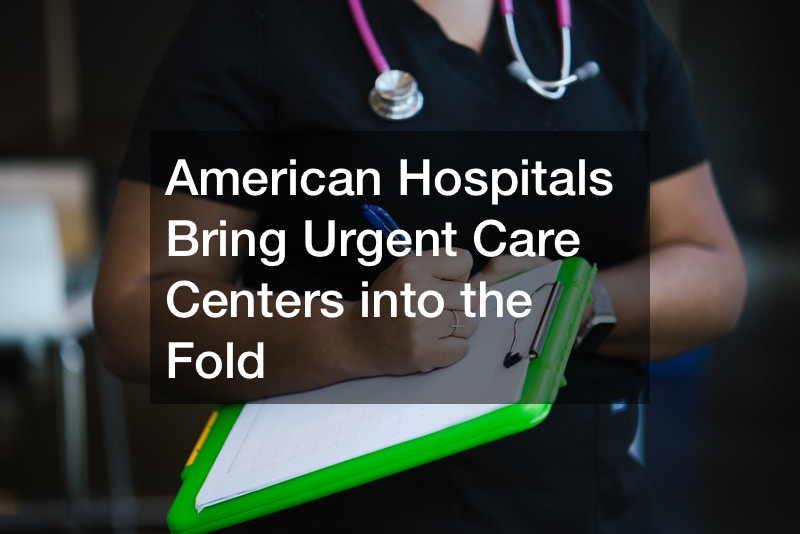American Hospitals Bring Urgent Care Centers into the Fold
When someone is dealing with a matter of medical urgency, it is perfectly natural for them to wonder where they should go for the best medical care. They might ask, is urgent care better than the ER? In many cases, it actually can be. When people go to the emergency room, they might actually find that the way the room is labeled is a misnomer. Even though it is called an emergency room, a lot of the time, people have to wait for hours and hours in order to be seen. A lot of the time, these people might think it would have been a better idea to go to urgent care instead, where they would have been seen more quickly and possibly saved money.
should go for the best medical care. They might ask, is urgent care better than the ER? In many cases, it actually can be. When people go to the emergency room, they might actually find that the way the room is labeled is a misnomer. Even though it is called an emergency room, a lot of the time, people have to wait for hours and hours in order to be seen. A lot of the time, these people might think it would have been a better idea to go to urgent care instead, where they would have been seen more quickly and possibly saved money.
A lot of the time, an urgent care center is going to be a walk in clinic. Some people do not understand a whole lot about urgent care. They might question, is urgent care for emergencies only? Is urgent care the same as ER? If you have any questions like this, it would be a good idea to call up an urgent care center in your area and ask them what kinds of services they provide.
 According to a recent story in New Orleans’ The Times-Picayune, American hospitals are increasingly looking to urgent care centers to drive up hospital referrals and revenue. Thanks to the increased demand for urgent care services, known for bringing a wide range of benefits that the traditional emergency room lacks, hospitals are buying up urgent care centers in their local areas. At last blush, hospitals now own 9,000 urgent care facilities across the United States.
According to a recent story in New Orleans’ The Times-Picayune, American hospitals are increasingly looking to urgent care centers to drive up hospital referrals and revenue. Thanks to the increased demand for urgent care services, known for bringing a wide range of benefits that the traditional emergency room lacks, hospitals are buying up urgent care centers in their local areas. At last blush, hospitals now own 9,000 urgent care facilities across the United States.
Urgent Care Centers Now Fill the Role of the Solo Physician’s Office
In the past, hospitals shirked the burgeoning urgent care facility in favor of private medical practices. By forming associations with these firms or buying them altogether, hospitals were guaranteed patient, or more realistically, customer referrals from associated doctors. However, just as patient confidence and attendance has moved away from hospitals, so, too, do an increasing number of Americans look to urgent care centers for services traditionally provided by private practices run by one or two physicians.
“Urgent care centers have transformed over the last couple of years to be much more inclusive medically than than their original design,” says Alison Hare of Doctors Express Englewood. “The evolution and growth of urgent care medicine has allowed more patients to have access to medical care in a quicker and easier manner than what traditional medical offices typically offer at a fraction of the cost.”
Urgent care centers have earned the patronage of Americans in a number of ways, ranging from 69% of facilities reporting wait times of less than 20 minutes to drastically reduced costs of care. With a prevalent belief that full adoption of the Affordable Care Act, more popularly known as Obamacare, will increase the number of insured Americans — a large portion of whom never had insurance and thereby lack any sort of loyalty to a traditional doctor’s office — it’s thought that urgent care centers will expand at a geometric rate over the next decade. That being said, it should be no surprise why so many hospitals are switching up their strategies from focusing on private practices to bringing urgent care centers into the fold.










